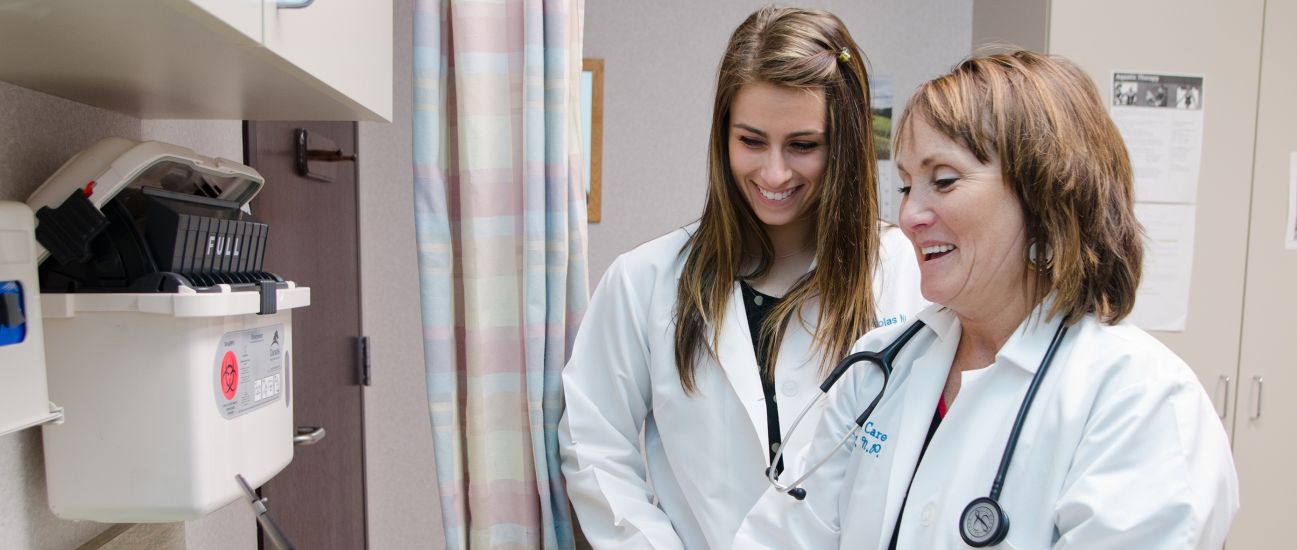Pre-Public Health

As a pre-public health student, Carthage has numerous faculty/staff members to support your journey to professional school. Make sure you are working closely with your assigned faculty advisor to address any questions relating to your major or minor requirements.
You can also contact the science and pre-health career specialist in The Aspire Center. They can help you with general questions relating to the application process and prerequisites to help you meet your career goals.
Preparing for professional school starts year one at Carthage and we are here to help you each step of the way! We recommend that you reach out to your advising team as soon as possible regarding your plans so they can help you start preparing. You should also join the Pre-Health Club at Carthage which could help you foster connections with other pre-health students, understand your next steps, and deepen your experience with healthcare.
While different schools will have different expectations on what classes you should take, the following are often required.
- 2 Semesters of Introductory Biology (BIO 1110 and BIO 1120)
- General Chemistry with Labs (CHEM 1010 and CHEM 1020)
- 1-2 Semesters of Physics (PHY 2100 and PHY 2110 or PHY 2200 and PHY 2210)
- 1-2 Semesters of Calculus (MTH 1120 and 1220)
- Statistics (MTH 1050)
- 2 English Courses
While the following courses are not required as often, they often come strongly recommended.
- Introduction to Sociology (SOC 1000)
- Introduction to Psychology (PSY 1500)
- Genetics (BIO 2400)
While Carthage students usually apply to somewhere between 3-4 schools, you can apply to as many schools as you would like. However, you should be aware that there is a financial commitment associated with application fees and the cost of submitting materials for review. As such you should only apply to schools you would genuinely consider attending.
Application Process Timeline
Applications will be submitted through the SOPHAS platform. If you are planning on attending right after your undergraduate degree you should apply the summer of your junior year. It is recommended that you have all materials ready when the platform opens mid-August and submit your application as soon as possible.
Personal Statement
You will need to submit a personal statement with your application. To help craft your personal statement, attend our Personal Statement Workshop, typically held in the fall semester.
You will need several letters of recommendations (3-4) for your application. While different schools may have different expectations for where your letters of recommendation should come from, it is usually expected to have at least 1-2 from a science course professor and 1-2 from a public health professional you have worked with or shadowed under.
Letter of Recommendation Timeframe
Ideally, you should ask for letter of recommendations at least 2-3 months in advance of your application deadline, although give as much time as possible. This way they have adequate time to reflect upon their experience and write the best possible letter they can.
Receive your bachelor’s at Carthage and a Master’s of Public Health at the Medical College in Wisconsin in just five years. Carthage students may enroll in the Medical College of Wisconsin’s online graduate public health program prior to graduation from Carthage. After graduation from Carthage, these students continue as graduate students at MCW for approximately one additional year until they complete the Master of Public Health program.
